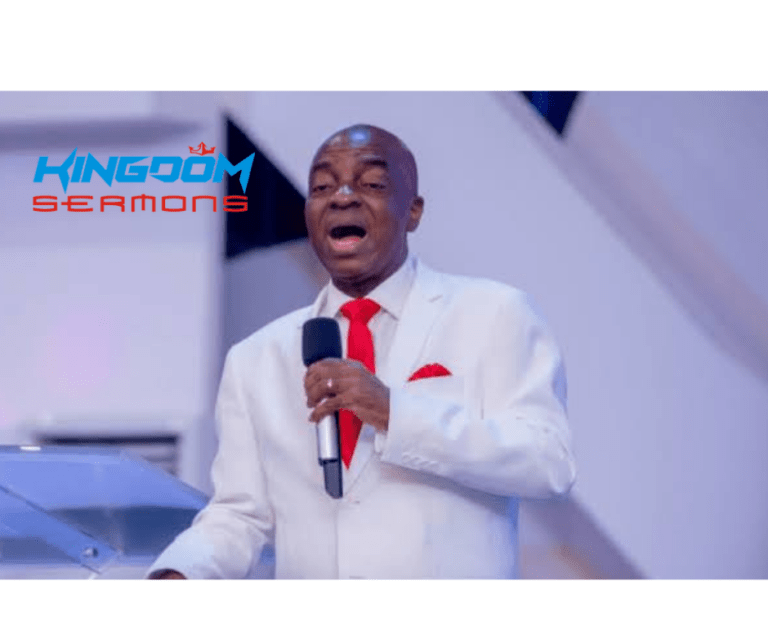Sermon: Forgiveness By Pastor EA Adeboye
Sermon: Forgiveness By Pastor EA Adeboye
- Introduction to the Sermon Topic: “Forgiveness”
- The Importance of Forgiveness in Scripture
- Understanding Forgiveness
- The Process of Forgiveness
- The Power of Forgiveness
- Forgiveness in Action
- Overcoming Obstacles to Forgiveness
- Receiving God’s Forgiveness
- Forgiveness and Healing
- Conclusion
“Forgiveness”: Healing Hearts and Restoring Relationships
Forgiveness is a cornerstone of the Christian faith, embodying the transformative power of love and grace. This article delves into the significance of forgiveness, drawing insights from scripture and real-life examples of healing and reconciliation.
Introduction to the Sermon Topic
Forgiveness lies at the heart of the Christian message, reflecting God’s unconditional love and grace towards humanity. In this sermon, we will explore the profound significance of forgiveness in the Christian faith, examining biblical teachings and practical wisdom for embracing forgiveness in our lives and relationships.
The Importance of Forgiveness in Scripture
Scripture abounds with teachings on forgiveness, emphasizing its central role in the Christian life. Ephesians 4:32 urges believers to “Be kind and compassionate to one another, forgiving each other, just as in Christ God forgave you” (NIV). Jesus’ own example of forgiveness, demonstrated on the cross, serves as the ultimate expression of God’s mercy and grace towards humanity.
Understanding Forgiveness
Forgiveness is more than just a mere act of pardoning; it is a transformative process that leads to personal healing and reconciliation. By extending forgiveness to others, individuals release themselves from the burden of bitterness and resentment, experiencing newfound freedom and peace.
The Process of Forgiveness
The process of forgiveness involves acknowledging the hurt, releasing resentment, and choosing to extend grace and mercy to those who have wronged us. It requires humility, courage, and a willingness to surrender our desire for vengeance to God. Through prayer and reliance on God’s strength, individuals can overcome the pain of betrayal and embrace a spirit of forgiveness.
The Power of Forgiveness
Forgiveness has the power to heal relationships, mend broken hearts, and bring about reconciliation. By extending forgiveness to others, individuals pave the way for restoration and healing, both for themselves and for those they forgive. The act of forgiveness frees both the forgiver and the forgiven from the chains of anger and resentment, allowing love and grace to prevail.
Forgiveness in Action
Real-life examples of forgiveness and reconciliation illustrate the transformative impact of forgiveness in restoring broken relationships. From personal conflicts to deep-seated wounds, forgiveness has the power to bridge divides and foster healing and reconciliation. Testimonials and anecdotes of individuals who experienced profound healing through forgiveness serve as powerful reminders of God’s redemptive love and grace.
Overcoming Obstacles to Forgiveness
Despite its transformative power, forgiveness can be challenging, particularly in the face of deep-seated hurt and betrayal. Pride, fear, and misunderstanding often hinder individuals from extending forgiveness to others. However, by acknowledging these obstacles and seeking God’s strength and guidance, individuals can overcome barriers to forgiveness and embrace a lifestyle of grace and mercy.
Receiving God’s Forgiveness
Central to the act of forgiveness is the recognition of God’s unconditional love and forgiveness towards humanity. Romans 5:8 reminds us that “God demonstrates his own love for us in this: While we were still sinners, Christ died for us” (NIV). By receiving God’s forgiveness and extending it to others, individuals participate in the transformative work of grace and reconciliation.
Forgiveness and Healing
Forgiveness is intrinsically linked to personal healing, both emotionally and spiritually. By releasing the grip of bitterness and resentment, individuals experience profound healing and restoration, finding peace and wholeness in God’s love and grace. Testimonials and anecdotes of individuals who experienced healing through forgiveness serve as powerful testimonies to the transformative power of grace and mercy.
Conclusion
In conclusion, forgiveness is a transformative act of love







